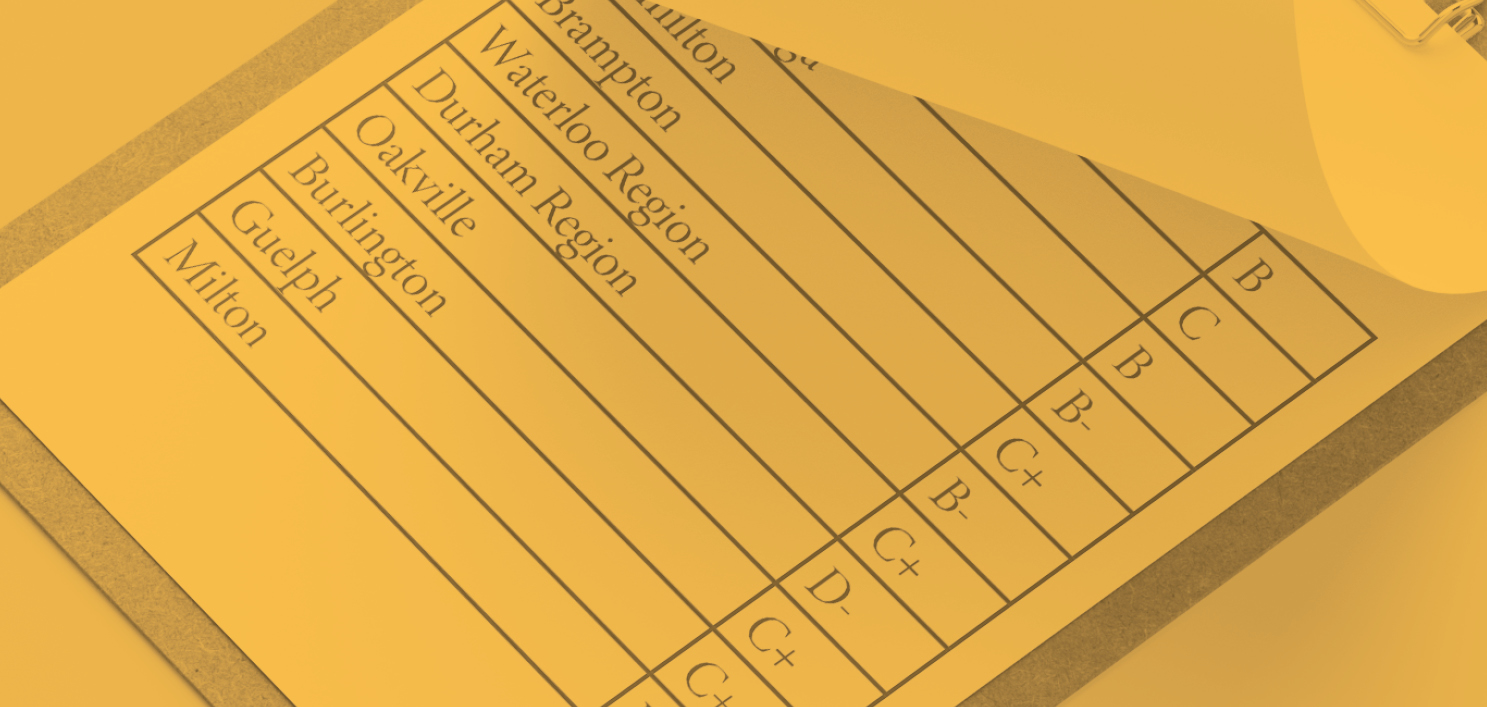Toronto, July 5, 2023 - Today, the Toronto Region Board of Trade released ‘Needs Improvement: Toronto Region Transit Report Cards'. These report cards outline the current state of the region's transit service offering and aim to inspire a collective effort to transform our transportation landscape.
The report cards, based on data from 2022, are informed by industry-standard metrics such as base service coverage, frequent service coverage, reliability, service improvement, transit priority measures, 24-hour service, and fare and service integration. By quantifying these aspects and considering qualitative factors, the Board provides a holistic assessment of each municipality's transit performance, ensuring objective comparisons and identifying areas for growth.
“Improving transit is critical to addressing our reputation as North America’s third-most congested city – a key barrier to the economic competitiveness of our region,” said Jan De Silva, President & CEO of the Toronto Region Board of Trade. “These report cards highlight where we’re falling short and, as a result, what we can look to as we seek to provide a world class transit network that will better-connect workers to jobs, students to school, and residents to their lives.”
“The results of these report cards show a fragmented system that hampers our region’s economic competitiveness,” said Giles Gherson, EVP & Chair of the Economic Blueprint Institute. “We must strive for an accessible, well-connected, high-frequency transit network that efficiently moves people. The assignment is clear. It’s time to put in the work for our region to get an A.”
The Board acknowledges that no evaluation system can fully capture the nuances of each municipality's transit system, and many of the limitations identified in these report cards are the result of a historical lack of investment and operational resources. The purpose of the report cards is to provide a framework for discussion and advocacy, utilizing data to pinpoint investment requirements and identify untapped opportunities.
Key Findings
Base Service Coverage:
Many municipalities have achieved near-universal base service coverage, such as Toronto, Mississauga, Brampton, Burlington, Waterloo, and Guelph. However, only 37% of York residents and 5% of Milton residents enjoy that basic level of service. This severely limits the pool of talent that employers in these areas can draw upon, limits opportunities for residents, and adds to road congestion.
Frequent Service Coverage:
Frequent Service Coverage is a formidable challenge for many municipalities. Only 39% of Mississauga residents, 34% of Brampton residents, 16% of York residents, and 0% in Milton and Oakville are within walking distance of frequent transit. Increased wait times result in poor transit experiences, and users choosing other modes of transport, hindering ridership.
Reliability:
Toronto had the least reliable transit at 58%, compared to other municipalities in the region, which all scored over 70%. Reliability (on-time performance) is a crucial aspect of transit systems as it builds trust among the users and encourages greater ridership. Click here to download the reliability data set, which shows the on-time performance of most major routes in the region.
The Toronto Region Board of Trade is one of the largest and most influential business chambers in North America and is a catalyst for the region’s economic agenda. We pursue policy change to drive the growth and competitiveness of the Toronto region and facilitate market opportunities with programs, partnerships and connections to help our members succeed – domestically and internationally.
Media Contact:
Avi D'Souza
Manager, Policy Communications
